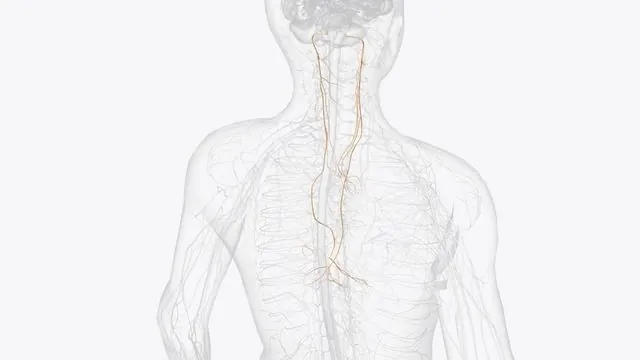
Breakthrough in PTSD Treatment: 100% Symptom-Free Results with Vagus Nerve Stimulation
2025-05-07
Author: Daniel
Transformative Study Unveils New Hope for PTSD Patients
A groundbreaking clinical trial led by researchers from The University of Texas at Dallas and Baylor University Medical Center has unveiled astonishing results for individuals suffering from treatment-resistant PTSD. In this pioneering study, participants remained completely free of PTSD symptoms for up to six months following a combination of traditional therapy and vagus nerve stimulation (VNS)!
The Trial That Defied Odds
This Phase 1 trial, documented in the journal Brain Stimulation, involved nine patients and boasts an unprecedented outcome: there was a remarkable 100% loss of PTSD diagnosis among participants. Dr. Michael Kilgard, a leading neuroscientist involved in the study, expressed optimism, noting that while some participants typically show improvement, complete remission is starkly rare.
The Innovative Therapy Mechanism
Traditional PTSD treatment often includes prolonged exposure therapy, where individuals confront distressing memories in a supportive setting. In this study, it was combined with VNS, which delivers mild electrical pulses through a device implanted in the neck. Following twelve sessions of this dual approach, participants were monitored for six months, demonstrating lasting benefits.
A New Era for Neuroplasticity
The researchers at the Texas Biomedical Device Center have previously shown that VNS can enhance neuroplasticity—the brain's ability to rewire itself—when paired with other therapies. Their innovative work has already earned FDA approval for treating upper-limb movement impairment after strokes, paving the way for advancements in various medical fields.
A Widespread Issue with Limited Solutions
According to the National Center for PTSD, approximately 5% of U.S. adults suffer from PTSD each year, with women being twice as likely to develop it. Many individuals remain unresponsive to conventional therapies, leaving them without viable options for relief. Dr. Kilgard notes that PTSD can affect anyone who experiences traumatic events, not just veterans.
Cutting-Edge Implant Technology
Designed over a decade ago by Dr. Robert Rennaker, the implantable VNS device has undergone significant advancements. The current version is about the size of a dime, 50 times smaller than its predecessors, allowing for greater convenience without interfering with standard medical procedures.
The Future of PTSD Treatment
With promising Phase 2 trials already underway in Texas, researchers are hopeful for further FDA approval of this innovative treatment. Dr. Mark Powers, a lead psychologist in the study, emphasizes the potential of VNS to enhance therapeutic effectiveness, stating that it could revolutionize care for patients who do not respond to traditional cognitive therapies.
Conclusion: A Collaborative Approach to Healing
This multifaceted research underscores the power of teamwork in driving medical innovations. As advancements continue, the collaboration between clinical and preclinical teams at institutions like UT Dallas shines a light on the future of PTSD treatments, offering hope to millions grappling with the effects of trauma.

 Brasil (PT)
Brasil (PT)
 Canada (EN)
Canada (EN)
 Chile (ES)
Chile (ES)
 Česko (CS)
Česko (CS)
 대한민국 (KO)
대한민국 (KO)
 España (ES)
España (ES)
 France (FR)
France (FR)
 Hong Kong (EN)
Hong Kong (EN)
 Italia (IT)
Italia (IT)
 日本 (JA)
日本 (JA)
 Magyarország (HU)
Magyarország (HU)
 Norge (NO)
Norge (NO)
 Polska (PL)
Polska (PL)
 Schweiz (DE)
Schweiz (DE)
 Singapore (EN)
Singapore (EN)
 Sverige (SV)
Sverige (SV)
 Suomi (FI)
Suomi (FI)
 Türkiye (TR)
Türkiye (TR)
 الإمارات العربية المتحدة (AR)
الإمارات العربية المتحدة (AR)